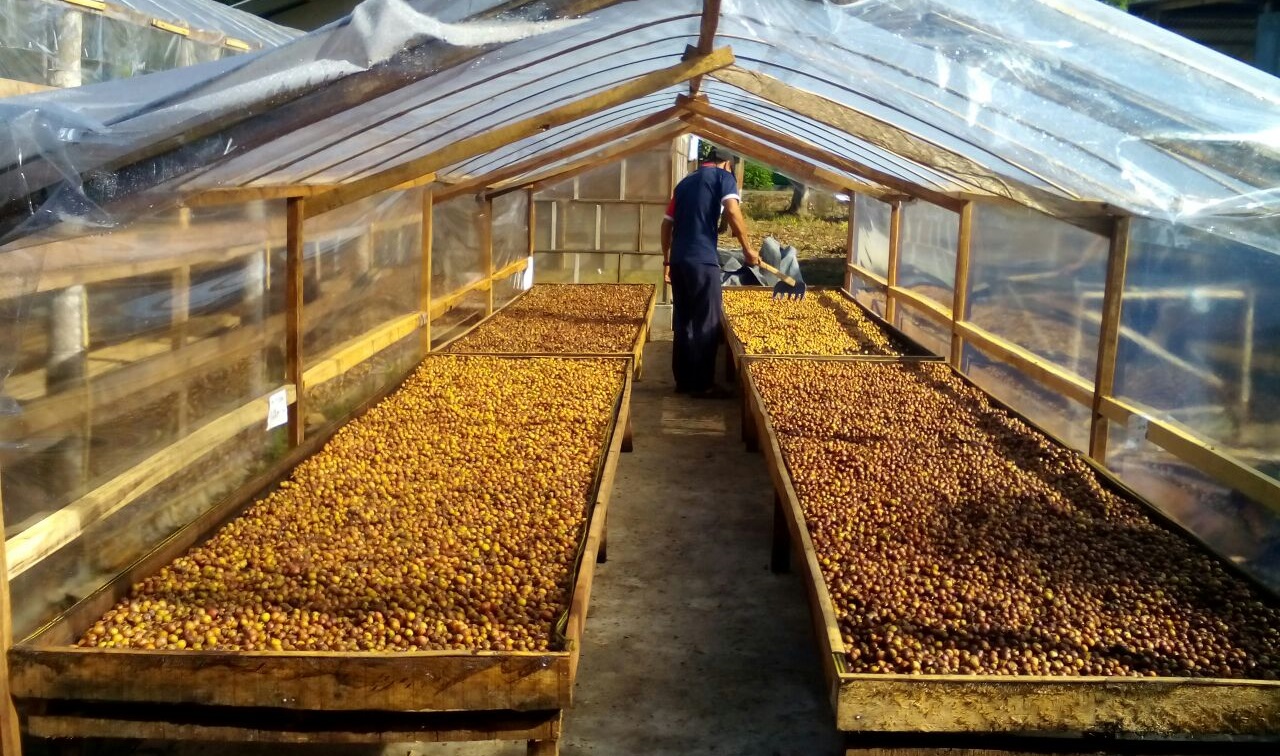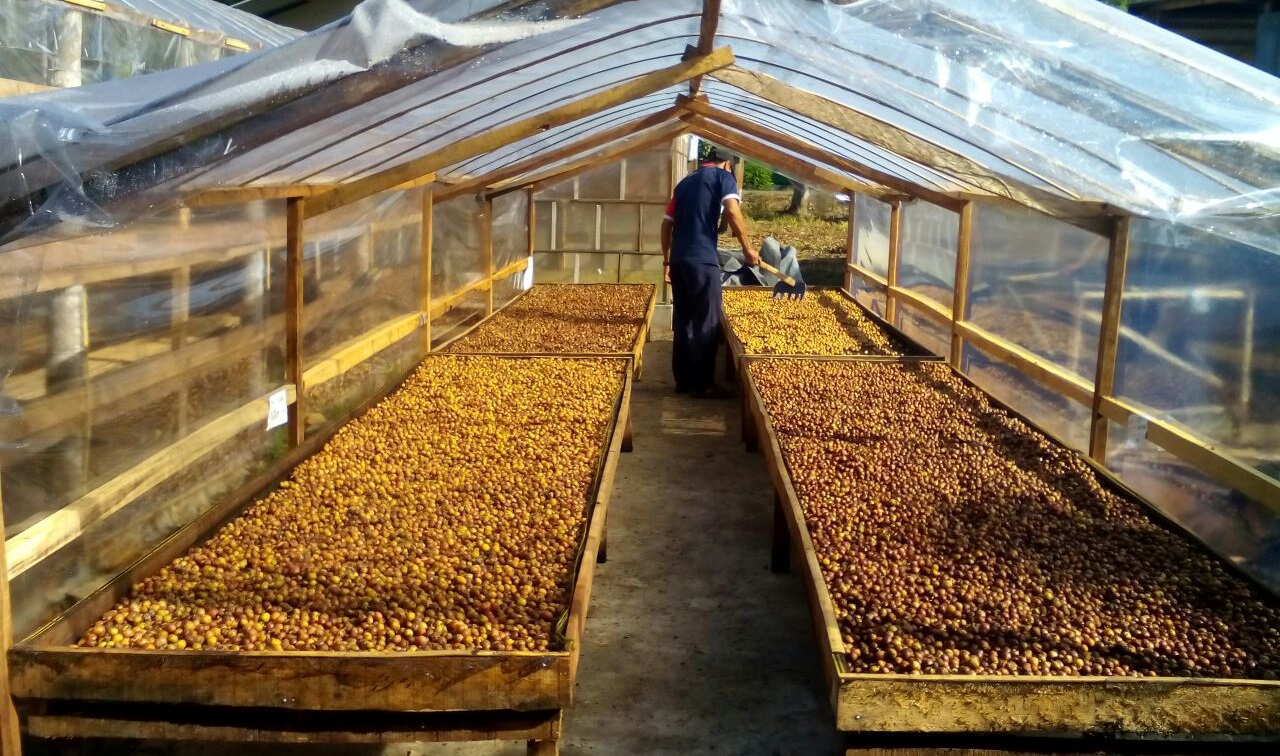Around two hours drive from the city of Jambi, capital of Jambi Province, one might not notice the small village called Mekar Jaya. It is part of Betara Sub-Regency, Tanjung Jabung Barat Regency, on the western area of the province. It still not well known yet, but their coffee produce is about to make an international debut.
Coffee plantation was introduced in the ‘80s to this regency. However, growing good and qualified coffee beans requires extra efforts. Moreover, the complexity of the world of marketing has made local farmers to put aside this popular commodity.
SKK Migas – PetroChina International Jabung Ltd, which also operating in this area, tried to dig any local potential to increase the standard of living of local community. In 2015, team from Indocita and PetroChina Jabung conducted a study and assessment on this regency and found that coffee plantation is a good prospect for the region.
The study then focused on locating the main problems and how to overcome those problems. The first and most obvious problem was the attack of white fungus disease on the coffee plants. It caused the coffee leaves to dry out and fall off, and finally it no longer produces fruits, although it has entered its productive age of 4-6 years old. More than 40% of the plants were affected by this disease. This condition has made farmers to converse their plantation into coconut palm, which seems to be economically promising.
The result of the assessment was brought to PetroChina Jabung and local government of Tanjung Jabung Barat. Both PetroChina and local government were agreed that this is a good opportunity to lift the regional economy through sustainable commodity.
“We committed to contribute to improve the economic condition of community living around our operation area, based on the existing local potentials. In this case, including the coffee commodity,” said Banu Subagya, Government and External Relations Superintendent of PetroChina International Jabung Ltd. Meanwhile, Head of Economic on Regional Planning and Investment Agency of Tanjung Jabung Barat, Mr. Budi Setiawan, stated his appreciation on the efforts to bring back coffee as local commodity of the Regency. “It is in line with local government’s programs,” he confirmed.
Sustainable Agriculture Productivity Improvement Program
On the next stage, PetroChina Jabung, through Indocita, chose local farmers group of Sido Muncul in Mekar Jaya Village, as the main target to develop. There are 46 farmers who joined this group, which average of each has around 2 hectares of coffee plantation. The type of coffee their cultivate is Liberica, which is now around 6-8 years old.
To deal with the white fungus disease, the local farmers were introduced with Trichoderma. It is another kind of fungus, which can be used to fight the disease. After several months of application, it shown a great result on the field and it can be said that white fungus disease is no longer a problem.
Training for a better cultivation technique of coffee plant and post-harvest processing method was also conducted for the group. One of the trainers was Mr. Saladin Akbar, from Black Java Coffee, Yogyakarta. Although he is working in Yogyakarta, he is a native Tanjung Jabung Barat residence. He trained local farmers on how to process coffee beans with four techniques to make premium-quality coffee, which can be marketed to medium and high class customers, or even for export purpose.
To increase the group’s ability in management, besides several training session, they also supported to create a business entity in the form of Cooperative. Through this program, PetroChina Jabung also donated some basic necessities to be use by the farmers’ group, including huller machine, pulper, sorting equipment, a dome, processing storage, etc.
“But our approach to this program is much more comprehensive than just donating tools and equipments. We also want to establish a good way of thinking as farmers, and institutional strengthening within the group,” according to Budi R. Minulyo, Program Coordinator from Indocita. One of the changes they aim is to eliminate the dependency of local farmers to chemical fertilizer. Farmers are encouraged to produce solid and liquid organic fertilizers, using organic materials surround them. In this way, production cost can be kept in minimum and their farms can be sustainable.
“LIBERCO”
Another crucial matter now is the marketing issue. Besides, what is the use of having good quality products if you have no market to sell it?
The first step to overcome this is by having recognition from independent and qualified institution for coffee. Therefore, a pack of green-bean coffee sample was sent to the Coffee and Cocoa Research Center (Puslitkoka) in Jember, East Java, for a cupping test. It is a test to determine the quality of coffee, in term of taste, aroma, and other indications. The result was very encouraging. It scored 8 in average, with ‘Excellent’ grade, after the coffee was tested with 6 different treatments.
The cupping test result gave enormous boost to the confidence level of local farmers, member of Sido Muncul Group. Now they believe that coffee might become the backbone of their future economic development. In term of the branding, they came up with a new brand called “LIBERCO,” which is stands of “Liberica Betara Coffee.”
With a help from Black Java, some customers already tasted a sample of Liberco. Even in the last August 2016, the coffee was introduced to the coffee exhibition in the six states of the USA. Hopefully, it could become the first step of entering the international market.
Finally, we are all hoping that this will not be the last time we hear about LIBERCO.



Jabung’s Liberica Coffee Eyes International Market